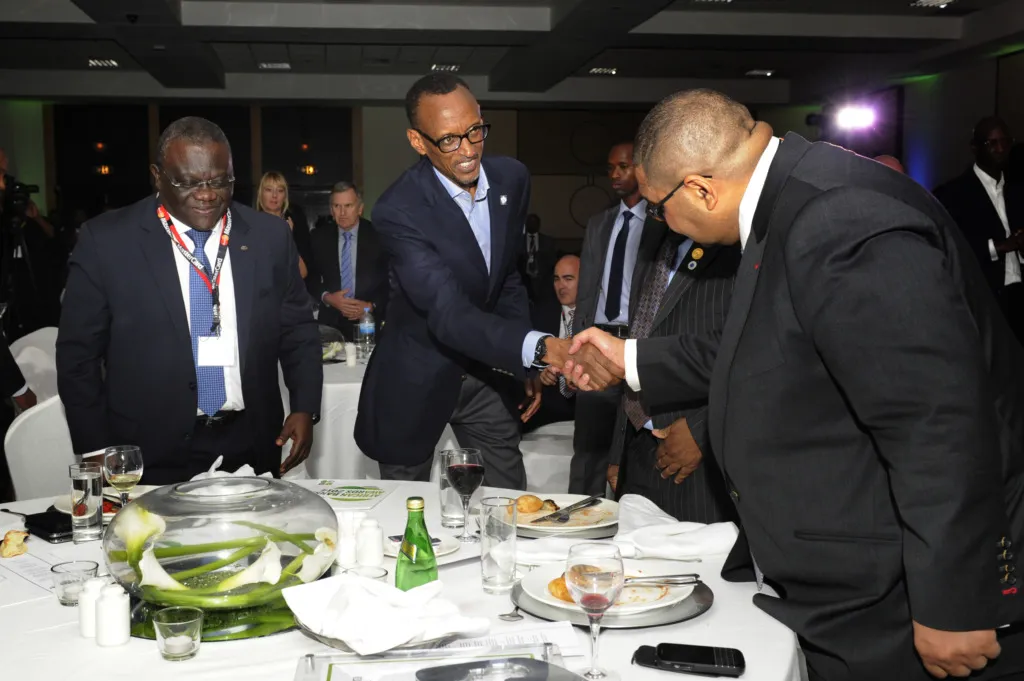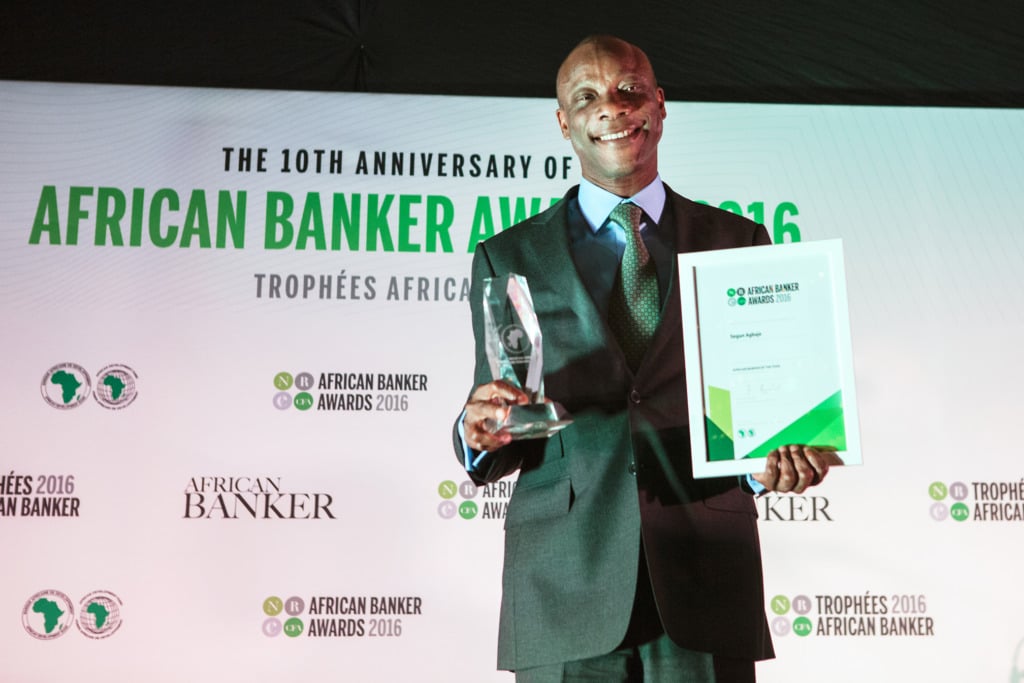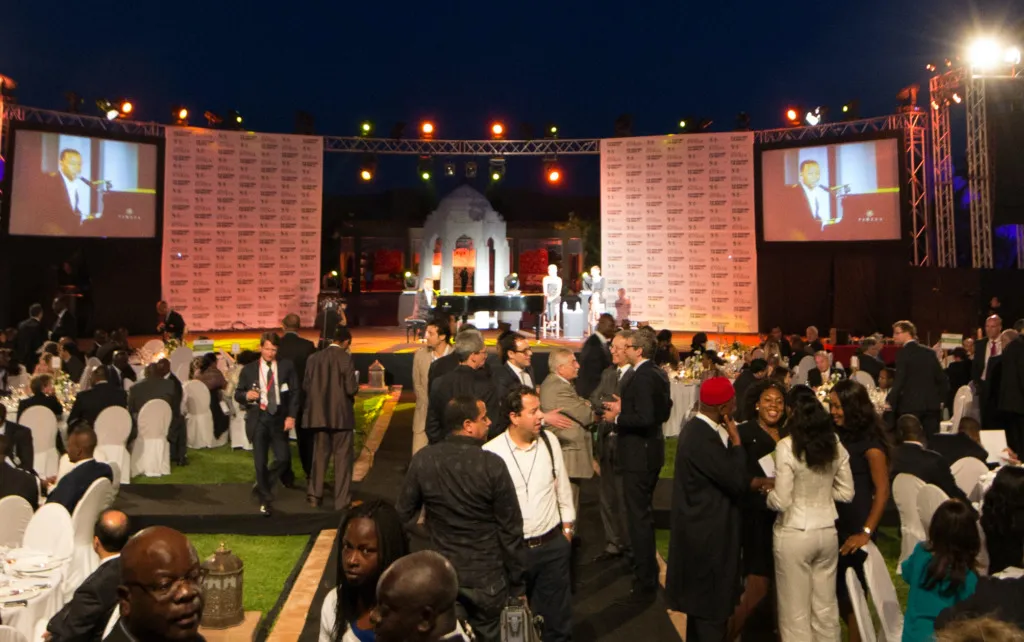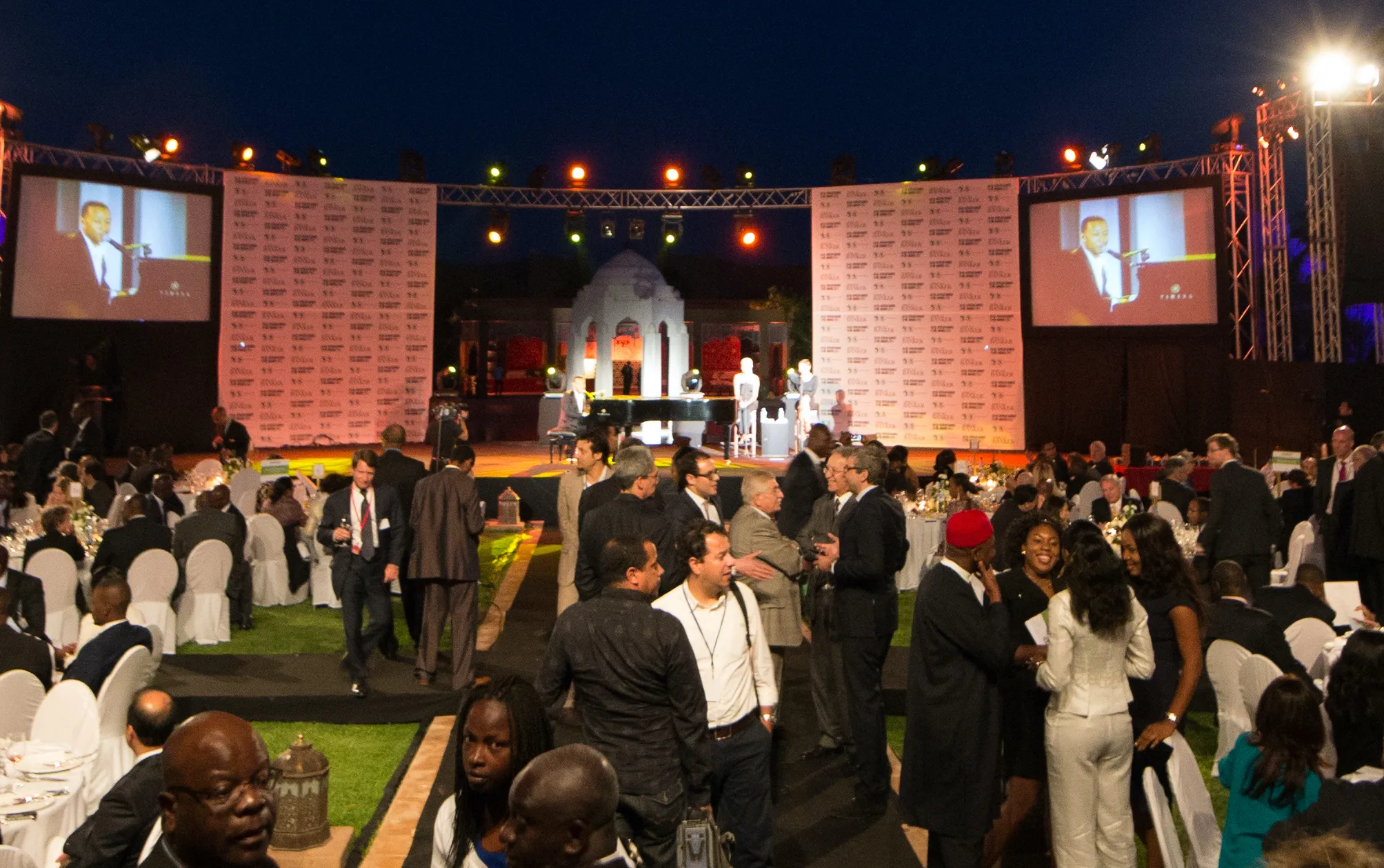Momentous developments often have a fairly prosaic beginning. In 2007, following a series of explosive events in the banking sector in Nigeria and on advice from some of our most astute advisors, including Nigeria’s central bank governor at the time, Chukwuma Soludo, we launched the African Banker magazine as a quarterly.
This was new territory for us, although of course we covered and commented on banking and finance in our flagship economics publication, African Business. After a total editorial and design makeover a few years earlier which involved placing the African entrepreneur and their concerns at the front, centre and back of all our endeavours, the publication just took off like never before.
Hitherto, business coverage had been limited to national boundaries and when any news broke on the international stage, its focus was mainly on the negative. Very occasionally, an African success story would peep from behind other ‘more important’ items and that too with plenty of caveats by the reporters.
The only genuinely pan-African coverage was provided by us through African Business for Anglophone Africa, and by the Jeune Afrique stable for Francophone Africa. Even then, the focus was very much on the activities of the multinational organisations such as the Bretton Woods institutions (the World Bank and the IMF) in Africa, and on the views of mostly Western international companies operating in Africa.
That was the model, inherited from the colonial attitudes in which most of the active force came from outside the continent while its own response was passive and often confined to statements by ministers of finance or central bank governors.

But the relaunch of African Business, which in terms of the quality and depth of writing and design was just as good – if not better – than the best available on the market including top Western publications, caused a huge stir, not only in Africa but far afield. Now the stars of the show, taking centre stage, were African entrepreneurs and the coverage focused on African economic activities as the central issue rather than as a sideline to others.
The success of African Business did two very important things: one, it broke the national silos that had limited and constrained the vision and ambition of entrepreneurs and two, African business successes and skills could no longer be ignored.
Profile after profile, interview after interview showed the maturity, the originality, the sophistication and the ambition of African entrepreneurs and business leaders. Views were echoed, discussed, amplified and modified across Africa. African enterprise had found a common voice and it spoke loudly and clearly – and the world listened.
Many of the earlier, idealistic aspirations such as pan-Africanism with teeth, greater cross-border trading, greater exchange of ideas, greater collaboration and the emergence of truly African multinational companies now seemed possible. There was a realistic road-map, not an airy-fairy wish list. Today, of course, much of that has been achieved and the African Continental Free Trade Area (AfCFTA) is probably the crowning pinnacle of that aspiration.
Something significant
Back in 2007, we were still deeply engrossed in the African Business project, which also involved ‘retraining’ our correspondents to think differently and working with some of the companies to adjust their advertising from a local retail focus to selling their brands internationally, when the call came to launch a publication specifically for the banking and finance sector.
This sector, which was composed of a few large international Western banks and a multitude of smaller, undercapitalised and poorly managed local banks, had failed to keep pace with the progress made by other commercial entities. Banks were locked in tight national silos with little or no information about what else was happening on the continent. Only Ecobank, with its clear pan-African mandate, was looking at the bigger picture.
Bank failures were frequent and regulatory authorities were weak, often undercapitalised and understaffed. For the majority, even in urban centres, trust in the system was almost non-existent. Most of commercial life was carried out on a cash basis. The cream of Africa’s talent was often trained and employed by Western multinational banks such as Citi Bank, J.P. Morgan and so on.
While local banks around Africa were trying to find a place for themselves to serve the interests of the new local commercial classes and national governments, the situation in Nigeria had become dire. Trust in the system was virtually gone as scandal followed scandal and bank failures multiplied.
Something had to be done. In 2004, the central bank governor, Chukwuma Soludo unleashed the ‘Consolidation big bang’. He raised the capital threshold more than 10-fold from N2bn to N25bn ($190m at the time).
This sent many of the banks into panic mode. They could only raise this amount of money through mergers, acquisitions or by raising fresh capital. Other requirements in Soludo’s 13-point reform agenda included the adoption of a rule-based regulatory framework that was more risk-focused, ensuring greater compliance and transparency and vastly improved corporate governance.
No other reforms in Nigeria’s financial history had gone so far nor bitten so deep. A scramble for M&A and fundraising ensued, as did head hunting for skilled and qualified executives. This brought in a fresh batch of gifted CEOs and managers, many of whom had held important positions at international banks. They saw vast opportunities in the new landscape – in which only 25 banks remained standing after the dust had settled – and were hungry for success. A bright new chapter had opened in the Nigerian banking story and the rest of Africa wanted to hear all about it.
We at IC Publications felt the vibes and became convinced that something very significant was under way and that this was not a temporary turning but a permanent new road.
This was our cue to launch African Banker – and I had the privilege to be its first editor. Our great ally in this venture was Christian Udechukwu – a handsome, barrel-chested Nigerian with a big laugh and boundless energy who was a vital link between the Nigerian government, the central bank, the commercial banks and interested parties in the UK. Through his BusinessinAfrica Events organisation, he brought diverse people together and set into motion very many valuable connections.
But African Banker, as I mentioned earlier, was new territory for us. We set out to look for the best finance writers we could find but the going was tough – most were reporters working on national dailies and had no clue as to what sort of stories would interest a pan-African or rather an international audience (as there was keen interest in the magazine in financial quarters worldwide) or, if they were reporting for the big Western agencies or media, they found it difficult to look at stories from the African perspective rather than from the perspective of their home countries.
But where there is a demand, the supply will come and we gradually built up an excellent team of correspondents and commentators. We decided we would apply the African Business model to African Banker and made the bankers and regulators the stars through profiles and interviews. We ran robust analysis and didn’t pull our punches when we felt criticism was due. As it has done in all our publications, the pan-African theme ran like a river through the magazine.
African Banker was an instant hit, with demand for copies increasing by the day. Many of our stories and interviews were lifted and reproduced in newspapers and finance magazines all over the continent.
With the new platform now established, important people in the banking and finance world reached out to us and made strong connections. We were a natural fit for people like Arnold Ekpe, the now legendary former CEO of Ecobank, or Jean-Louis Ekra, the former president of Afreximbank, or Aigboje Aig-Imoukhuede, the former CEO of Access Bank, among many others. These early connections have remained firmly in place to this day.

Donald Kaberuka, the former president of the African Development Bank and a man very well aware of the power of the media to get things done, invited us to the organisation’s HQ in Tunis at the time and gave us carte blanche to interview whoever we liked.
This was in sharp contrast to the earlier policy of secrecy that had surrounded the bank and the publication of the feature changed the image of the bank almost overnight. Again we made very strong connections and friendships, for example with Tim Turner, then head of the bank’s private sector arm. Other stalwart friends of the magazine who gave us invaluable insights included Ngozi Okonjo-Iweala, now Director General of the WTO, Razia Khan, Chief Economist at Standard Chartered, Obiageli ‘Oby’ Ezekwesili, Vice-President, World Bank and a host of other people who have helped fill in the gaps and become part of the African Banker family.
Time ripe for awards
Soon after African Banker had come into existence, with the first edition dedicated to the launch of the Africa Finance Corporation (another brainchild of Professor Soludo), Christian Udechukwu, who was a regular and very welcome presence at our offices, suggested the time was ripe to set up the African Banker Awards.
It was actually Udechukwu who was the brains behind both African Banker and the awards, which he co-founded alongside our group, and he was instrumental in their growth and success.
After the shocks of the early 2000s, African banks were in a much more comfortable place and many were expanding – both domestically as well as multinationally – at a rapid pace. This allowed many to survive the financial crisis of 2008 and proved that they could be resilient to global shocks and contribute to their nations’ developments.
The parameters and indices were also changing with issues like governance, CSR, inclusivity, efficiency, transparency and adaptation to new technology and methods coming more to the fore. “It’s time to find out the best of the best in each category and benchmark it,” argued Udechukwu. “And the choices need to be watertight so that no one can question the credibility of the awards.”
Afif Ben Yedder, who was the publisher at the time, Omar Ben Yedder, then the associate publisher and founder of our events division, and myself agreed.
We decided to shadow the annual World Bank General Meetings in Washington. Most of the top African bankers, central bank governors, ministers of finance and so on would be attending the meetings. It was also the time to showcase excellence on the global stage.
Our awards ceremony would provide not only welcome relief from the round of dry talks and discussions but bring together the continent’s banking community to break bread, get to know each other and enjoy an evening. We also knew that competition for the awards would be fierce and that judging would have to be scrupulous.
Omar was already breathing life into an IC Events department that had lain dormant for years. The ‘ABK Awards’ as we shortened them, would be his baby.
He was under no illusion. He knew the task would stretch his organisation and leadership capacity and that of his teams to the breaking point, as it would involve staging the event far from home, in Washington and the logistics were daunting.
Would he take it on? He said he would but added: “Africa deserves the best – we don’t compromise. Every event would have to be a showpiece.”
It was but at that point, no one knew that staging the annual awards would become such an adventure and throw up so many challenges. We decided that we would give awards for several categoriesof activities, with the big gongs going to the Bank of the Year and the Banker of the Year, although the Central Banker of the Year and the Finance Minister of the Year awards were also high in prestige value. We would also give outstanding bankers a Lifetime Award.
Once the call for entries had gone out, the team had to sift through every document that arrived and make a longlist before a smaller team would cut it down to a shortlist. Then judges had to be appointed and briefed and handed the shortlist for their final selection. The announcement of the winners would be made during a gala night which would also include some entertainment.
Easier said than done. The gods of disruption sometimes seemed to take a delight in making our plans go awry. With the world then obsessed with terrorism, logistics could be nightmarish.
Even when the team was safely at the venue, everything that could go wrong usually did. We found ourselves being bumped off the venues we had booked at the last minute; in Malabo, we had only 90 minutes to change an unscheduled, but high-powered lunch setting into our stage; someone decided to cut away the feeder cables in Lusaka “because they got under my feet” while the tables had gaping holes; in Busan we had to swallow hard when we discovered that the flowers we had ordered for tables would cost around $400 a bunch, and getting over the cultural divide was an achievement in itself.
However, the gods of wine were on our side in Ahmedabad, a city where the serving of alcohol is strictly prohibited. Through wily negotiations and a connected event planner we managed to get alcohol in time, the only event that week where guests could enjoy a refreshing beer in the dry heat.
But whatever the challenges, by the grace of providence and an astonishing degree of composure under fire on the part of Omar and his team, everything turned out right on the night.
Mending and making do
The first awards ceremony took place at the Grand Hyatt in Washington. The second was upgraded to the Willard Intercontinental, a hotel steeped in history. With the World Bank meetings taking place outside of Washington every third year, in 2009 the awards left Washington to move to the Four Seasons Hotel on the Bosphorus, Istanbul, Turkey. It was a very enjoyable affair with the Turkish hosts providing great hospitality. The awards were now truly global.
The next two events were held back at the Willard InterContinental Hotel in Washington DC but then there was a strong lobbying that instead of shadowing the World Bank, our awards should be held during the African Development Bank’s annual meetings. We readily agreed as it made great deal of sense. It was time to come home. We were in Arusha, Tanzania for the first of these awards in Africa, in 2012. I remember that due to some misunderstanding, the venue we had booked was no longer available. To make it worse, there was no other venue that could cater for around 400 people.
We were at our wits’ end when someone suggested setting up a big marquee on a field. But with the recent rains, the ground would be soft and muddy, we felt. No fear, a small group of Indians contractors turned up and said they would cover the ground with wooden platforms and set up the tents. “Can you do it in time?” Omar asked. “It is not a problem,” the leader answered. He gave the same answer to every question we put to him – which was a problem.
But sure enough, on a clear moonlit night, with Mount Kilimanjaro’s bulk in the distance, the venue was up and ready, festooned with torches and lights.
For the catering, we persuaded the lady who ran a small boutique hotel we were staying at to go for the big time and provide meals for 400 instead of a dozen. She took it on, trained a few young people to wait perfectly and the meal and awards ceremony were a huge success.
Two years later in Abidjan, Côte d’Ivoire, the ice-rink at the Sofitel hotel had to be converted to a gala dinner and awards venue in double-quick time. The Senegalese pop idol Baba Maal headlined the evening’s entertainment. In Lusaka, Zambia in 2016 we had to build a tent in the gardens of the InterContinental Hotel – but again, things went swimmingly.
The 2014 event in Kigali was later defined as the ‘heavyweights night’, according to Udechukwu. Among the VIP guests were Presidents Paul Kagame of Rwanda and Festus Mogae of Botswana, Donald Kaberuka, Mo Ibrahim, Ngozi Okonjo-Iweala, Arunma Oteh and others. All said they had enjoyed the event and been impressed. In some way, those meetings and our awards had established Kigali as a major centre for large international events. A year later their wonderful conference centre officially opened and it’s today a truly global leader in events and conferences.
But by general acclaim, the 2013 event held at the Taj Palace, Marrakesh, Morocco was the best. This event was staged in collaboration with famous designer Ozwald Boateng and his Made-in Africa Foundation. The setting in the ancient city of Marrakesh, surrounded by an oasis of palm trees, added an extra esoteric dimension and the entertainment provided by musical stars such as John Legend, Akon and Youssou N’dour, plus the wonderful Moroccan cuisine, made it a night never to be forgotten.

The awards took us to many places around the world, including Busan in Korea and Ahmedabad in India. We often worked with local contractors to give the event colour and grounding and for the bankers and other attendees, the opportunity to meet with and discuss issues of mutual interest was invaluable.
The awards have done two major services – one they broke down the silos, or even echo-chambers of most of the national banking sectors as those who threw their hats in the ring had to take into account what other banks in different jurisdictions were doing. So there was a lot of cross-fertilisation and exchange of ideas and processes.
“What the competition forced us to do,” one banker told me, “was to take a fresh look at our systems and models and ask ourselves if this was the best we could do. So even if you didn’t win, the fact that you had entered and presented your case… it has been a great ongoing exercise for improving our performance and trying to match up to the continental benchmark.”
For the winners of course, the awards have been greatly cherished trophies. They say these are not only the best locally, but continent-wide. “Winning the award has been a great boost to us morally and has given our staff, and even our customers, a feeling of great pride. In addition of course, we have used the award to its full extent in our advertising and PR – and the results have been great. We shall continue to strive to win other awards in the future,” said another banker, this time a major winner.
It goes without saying that we could not have staged any of the awards without the unstinting support of our sponsors. These are organisations with a wider and longer-term view of African banking and its place in the continent’s economic development. The list is too long to reproduce here but Ecobank, Afreximbank, the African Development Bank and the Nigerian Bank of Industry have been our stalwart supporters over the years. The last few years has seen also the African Guarantee Fund come in as our Platinum Sponsor. Working alongside our sponsors throughout the year and understanding their work and trying to do our bit to make their work resonate has been as rewarding as the event itself. The success of the awards is also very much their success.
The last two events have been held virtually and although nothing can compensate for the loss of the real live person-to-person events, they have been very well attended and, pandemic or not, the competition to get and hold one of the African Banker trophies has been as fierce as ever – which is wonderful news for the health of Africa’s vibrant banking sector. Normal service, we believe will resume in the near future when the African Banker family will once again collect in another exotic location to celebrate the best of the best for that year. See you there!
Want to continue reading? Subscribe today.
You've read all your free articles for this month! Subscribe now to enjoy full access to our content.
Digital Monthly
£8.00 / month
Receive full unlimited access to our articles, opinions, podcasts and more.
Digital Yearly
£70.00 / year
Our best value offer - save £26 and gain access to all of our digital content for an entire year!
 Sign in with Google
Sign in with Google 



